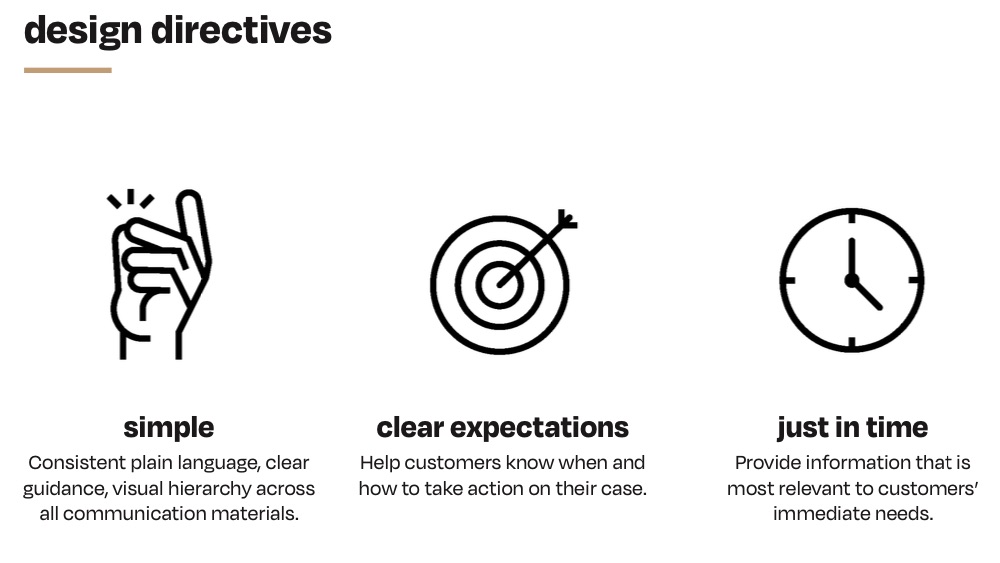Location: United States
-

Interaction Designer
This is a job description for the role of Interaction Designer from the City of Austin.
-

Michigan UIA Design Directives and Principles
Two-sided notecard shared with the entire UIA agency with a message uplifting these tenets in service to Michigan workers and employers.
-

Technical Manager
This is a job description for the role of Technical Manager from the New York City Mayor's Office for Economic Opportunity (NYC Opportunity).
-

Recruiter
This is a job description for the role of Recruiter from the 18F.
-

Senior Research Designer
This is a job description for the role of Senior Research Designer from the City of Philadelphia Office of the Chief Administrator (CAO).
-

Project Manager
This is a job description for the role of Project Manager from the City of Austin.
-

Director
This is a job description for the role of Executive Director from the 18F.
-

Engagement/Product Manager
This is a job description for the role of Engagement/Product Manager from the Commonwealth of Massachusetts.
-

Visual Designer
This is a job description for the role of Visual Designer from the State of California.
-

Account Management Director
This is a job description for the role of Account Management Director from the 18F.
-

Information Technology Executive (Senior Business Analyst)
The Governor's Office of Administration is seeking an informational technology executive 2 to join our growing and innovative Commonwealth Office of Digital Experience PA team! This position is responsible for providing strategic business analysis services to the CODE PA Office. This position collaborates with stakeholders to better understand and document the capabilities needed to address challenges in the meeting the Commonwealth digital experience objectives. If this sounds like the job for you, apply today!
-

UX Designer
This is a job description for the role of UX Designer from the New York City Digital Services.